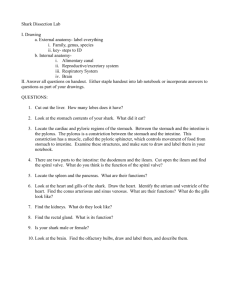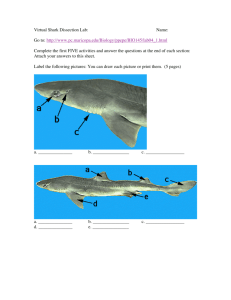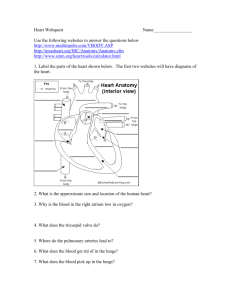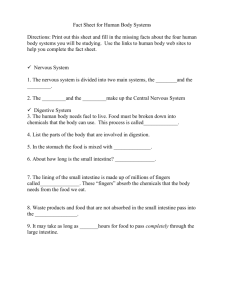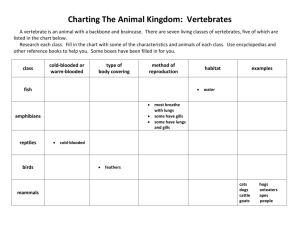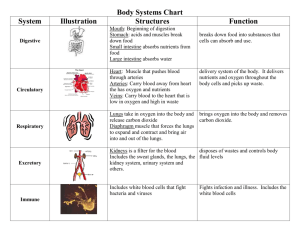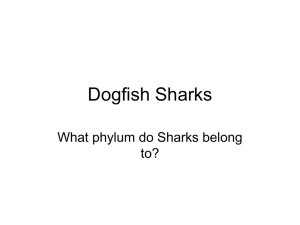Anatomy End of Semester Dissections
advertisement
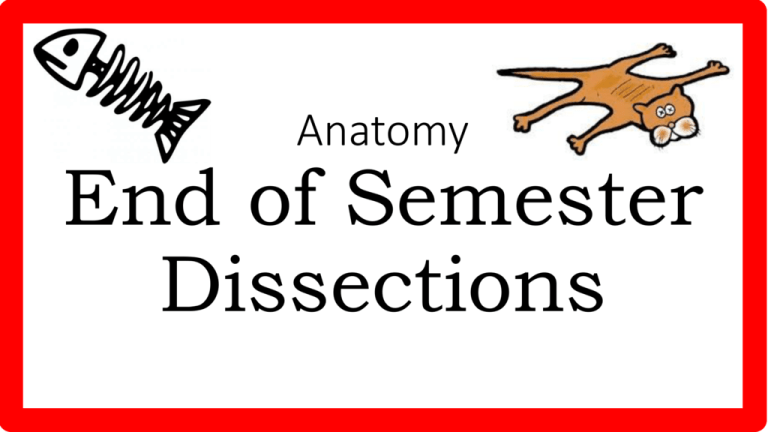
Anatomy End of Semester Dissections (1) Cat Organs to Know: 1- Heart 2- Lungs 3- Diaphragm 4- Ribs 5- Stomach 6- Liver 7- Gallbladder 8- Spleen 9- Small Intestine 10- Large Intestine 11- Kidneys (2) Cat Organ Anatomy: (3) Cat Organ Functions: 1- Heart: Pumps blood and circulates nutrients. 2- Lungs: Brings in O2 gas, and expels CO2 gas. 3- Diaphragm: Allows the lungs to fill with air. 4- Ribs: Bones that protect the lungs and heart. 5- Stomach: Metabolizes food. 6- Liver: Breaks down toxins and malfunctioning red blood cells. 7- Gallbladder: Stores bile for food digestion. 8- Spleen: Helps with immune system and malfunctioning blood cells. 9- Small Intestine: Absorbs nutrients from digested food. 10- Large Intestine: Absorbs water and excretes waste. 11- Kidneys: Filter blood. (4) Shark Organs & Parts to Know: External Parts: 1- Gills 2- Lateral Line 3- Spiracle 4- Claspers 5- Ampullae of Lorenzini Internal Organs: 6- Heart 7- Liver 8- Stomach & Intestine 9- Kidneys (5) Shark External Anatomy: (6) Shark External Part Functions: 1- Gills: Allow for oxygen intake from water (breathing). 2- Lateral Line: Contains fluid that allows sharks to monitor changes in pressure, water depth, and swimming direction. 3- Spiracle: Small opening behind the eye that allows a constant flow of water across the gills. 4- Claspers: Smaller fins under the tail, used for grasping during sex. 5- Ampullae of Lorenzini: Nerve Patches that detect electrical impulses coming from other living organisms (for hunting). (7) Shark Internal Anatomy: (8) Shark Internal Organ Functions: (Same functions as in cats + humans.)

